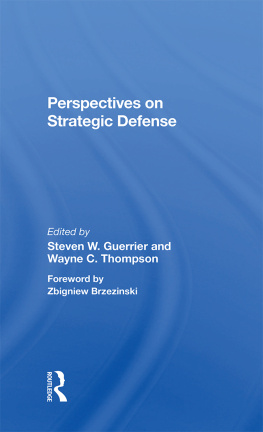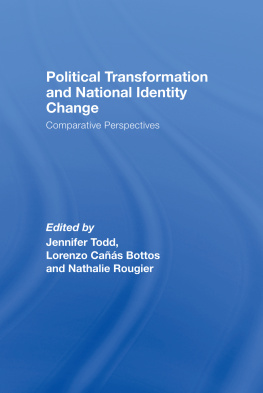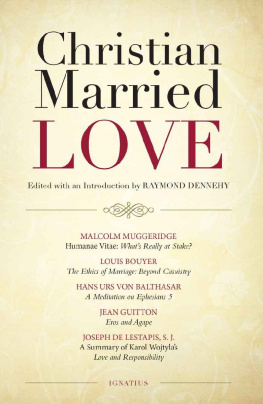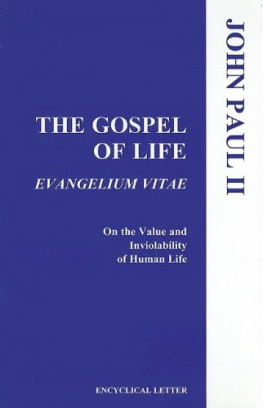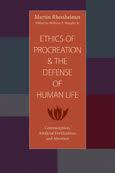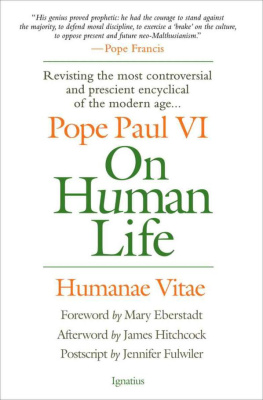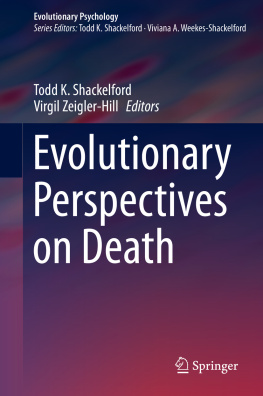Todd Aglialoro1 - Inseparable: Five Perspectives on Sex, Life, and Love in Defense of Humanae Vitae
Here you can read online Todd Aglialoro1 - Inseparable: Five Perspectives on Sex, Life, and Love in Defense of Humanae Vitae full text of the book (entire story) in english for free. Download pdf and epub, get meaning, cover and reviews about this ebook. year: 2018, publisher: Catholic Answers Press, genre: Religion. Description of the work, (preface) as well as reviews are available. Best literature library LitArk.com created for fans of good reading and offers a wide selection of genres:
Romance novel
Science fiction
Adventure
Detective
Science
History
Home and family
Prose
Art
Politics
Computer
Non-fiction
Religion
Business
Children
Humor
Choose a favorite category and find really read worthwhile books. Enjoy immersion in the world of imagination, feel the emotions of the characters or learn something new for yourself, make an fascinating discovery.

- Book:Inseparable: Five Perspectives on Sex, Life, and Love in Defense of Humanae Vitae
- Author:
- Publisher:Catholic Answers Press
- Genre:
- Year:2018
- Rating:4 / 5
- Favourites:Add to favourites
- Your mark:
- 80
- 1
- 2
- 3
- 4
- 5
Inseparable: Five Perspectives on Sex, Life, and Love in Defense of Humanae Vitae: summary, description and annotation
We offer to read an annotation, description, summary or preface (depends on what the author of the book "Inseparable: Five Perspectives on Sex, Life, and Love in Defense of Humanae Vitae" wrote himself). If you haven't found the necessary information about the book — write in the comments, we will try to find it.
Todd Aglialoro1: author's other books
Who wrote Inseparable: Five Perspectives on Sex, Life, and Love in Defense of Humanae Vitae? Find out the surname, the name of the author of the book and a list of all author's works by series.
Inseparable: Five Perspectives on Sex, Life, and Love in Defense of Humanae Vitae — read online for free the complete book (whole text) full work
Below is the text of the book, divided by pages. System saving the place of the last page read, allows you to conveniently read the book "Inseparable: Five Perspectives on Sex, Life, and Love in Defense of Humanae Vitae" online for free, without having to search again every time where you left off. Put a bookmark, and you can go to the page where you finished reading at any time.
Font size:
Interval:
Bookmark:
Edited by Todd Aglialoro and Stephen Phelan
I nsepa r a bl E
Five Perspectives on Sex , Life , and Love in Defense of Humanae Vitae

2018 Catholic Answers
All rights reserved. Except for quotations, no part of this book may be reproduced or transmitted in any form or by any means, electronic or mechanical, including photocopying, recording, uploading to the internet, or by any information storage and retrieval system, without written permission from the publisher.
Published by Catholic Answers, Inc.
2020 Gillespie Way
El Cajon, California 92020
1-888-291-8000 orders
619-387-0042 fax
catholic.com
Printed in the United States of America
Cover design by ebooklaunch.com
Interior design by Sherry Russell
978-1-68357-091-2
978-1-68357-092-9 Kindle
978-1-68357-093-6 ePub
Foreword

In 1962, the Fathers of the Second Vatican Ecumenical Council were presented with drafts of the constitutions and decrees they were to discuss and vote upon. Most of these, with the exception of the document on the sacred liturgy, were famously eliminated from consideration during the first session of the council.
One of those eliminated from discussion was a dogmatic constitution entitled, On Chastity, Matrimony, the Family, and Virginity. This document is barely mentioned in subsequent histories of the council, but today it bears close scrutiny. The hardy theologians of the Roman School, whom some of the prelates and periti from Northern Europe mocked and marginalized as out of touch with modern conditions, had produced a document that would have been of tremendous assistance to pastors of souls and Catholic thinkers, and one that in retrospect was prophetic and almost preternaturally precise about current challenges regarding human life and its cradle, the family. The discussion and approval of the document might have spared the Church so many trials!
Surely the memory of Bl. Pope Paul VI went back to those early days of the council with a certain regret as he was forced, in composing his great encyclical letter Humanae Vitae , to resolve a greater issue than that of the pill. And, as his former admirers in various hierarchies of the Catholic world abandoned him, leaving him alone to fight for the truth, his old opponents of the Roman School, hitherto viewed as hidebound and outdated, were his clear supporters and friends. They prayed that he would maintain the clarity of the Ven. Pius XII, whose closest institutional associate he had been for over a decade. And he did.
What had they foreseen and addressed in the abandoned dogmatic constitution? Well, just about everything we take as normally controverted and discussed today. For example, already in 1962, they addressed sexual dysphoria and mutilation and the nature of sexual identity, sex education, same-sex attraction, the indissolubility of marriage, feminism, genetic manipulation, overpopulation and demographic shifts, and they dealt as well with contraception. Regarding which last, this would have been in the text of a proposed dogmatic constitution Christifideles Universi :
This holy synod, while it most earnestly exhorts all that each and every one as far as possible effectively assist families who have a great number of children, at the same time severely reproves the recommending or the propagation of immoral means of contraceptives for limiting offspring, by which not only the good of the peoples is not defended, as is today sometimes falsely thought, but rather the whole social order is corrupted.
Paul VI would have been mightily assisted had this or a similar text been promulgated by the council.
Had this fundamental declaration of the constant teaching of the Church in the matter of contraception been promulgated, then Paul VIs only task would have been to determine whether the pill actually constituted contraception or not. As it was, he had to defend the whole teaching of the Church, not just apply it in a particular matter of medical technology. There were at the time serious and respected theologians and philosophers, like the great Thomist Charles de Koninck, who erroneously did not see the pill as an unnatural means for the spacing of birth, but rather as acceptable in the context of marriage. But the genius of, or better, the onus on Papa Montini was his clear understanding that the whole issue had to be addressed explicitly and carefully. Thus, he gave to the Church the treasured and carefully crafted gift of Humanae Vitae , in which, in principle, the whole order of sexual morality is defended and explained.
Yes, he could have been spared the trouble by a preemptive decree of the council, but there is one sense in which the loving Providence of God may have permitted this politically or navely motivated omission. The original decree would have been in rather essentialist terms, minimally referring to the complexity and difficulty of human experience. What came to pass instead was the creation of a whole school of reflection, in large part lay, but significantly clerical too, that reflected more deeply on the concrete experience of human sexuality and married life.
Thus were born the reflections of Bishop Karol Wojtyla, and the personalist thought of Dietrich von Hildebrand and Josef Seifert and many others. Those who are more classically inclined Thomists might have done without the exhaustive analysis they offered, since they were already convinced, but it cannot be denied that an accidental but real benefit of the delay and of the ambiguities in Gaudium et Spes and in the work of the papal commission was to move serious Catholic thinkers outside the Roman School to expound and defend the traditional teaching in their own terms.
To no small extent, the diverse essays in this book demonstrate, and powerfully so, the good and meaning of this development.
Of course, the Church treasures and favors the classical teaching and approach of St. Thomas above all others, but her main concern is the salvation of souls. Any line of true reasoning and research that keeps souls from sin corresponds to her supreme law, which in the very last canon of the Code of Canon Law is defined as salus animarum : the salvation of souls. Suprema lex salus animarum . But, in the case of contraception we are confronted with an especially deep application of this principle, for in order for there to be the salvation of souls, there have to be souls! Contraception, in the end, is a war against the glory of God shown forth in the procreation and education of human beings.
In this regard, it is important to make clear the relationship between a new evangelization regarding human life and the Churchs teaching on contraception. Respect for human life is related essentially to respect for the integrity of marriage and the family. The attack on the innocent and defenseless life of the unborn has its origin in an erroneous view of human sexuality, which attempts to eliminate, by mechanical or chemical means, the essentially procreative nature of the conjugal act. This error maintains that the artificially altered act retains its integrity. The claim is that the act remains unitive or loving, even though the procreative nature of the act has been radically violated. In fact, it is not unitive, for one or both of the partners withholds an essential part of the gift of self, which is the essence of the conjugal union.
The manipulation of the conjugal act, as Paul VI courageously observed, has led to many forms of violence against marriage and family life. Once sexual union is no longer seen to be procreative by its very nature, human sexuality is abused in ways that are profoundly harmful and indeed destructive of individuals and of society. One has only to think of the devastation daily wrought in our world by the multi-billion-dollar industry of pornography, or of the aggressive homosexual agenda that can only result in the profound unhappiness and even despair of those affected by it and in the destruction of society. Fundamental to the transformation of culture is the proclamation of the truth about the conjugal union in its fullness and the correction of the contraceptive thinking that fears procreation; that fears life.
Next pageFont size:
Interval:
Bookmark:
Similar books «Inseparable: Five Perspectives on Sex, Life, and Love in Defense of Humanae Vitae»
Look at similar books to Inseparable: Five Perspectives on Sex, Life, and Love in Defense of Humanae Vitae. We have selected literature similar in name and meaning in the hope of providing readers with more options to find new, interesting, not yet read works.
Discussion, reviews of the book Inseparable: Five Perspectives on Sex, Life, and Love in Defense of Humanae Vitae and just readers' own opinions. Leave your comments, write what you think about the work, its meaning or the main characters. Specify what exactly you liked and what you didn't like, and why you think so.


